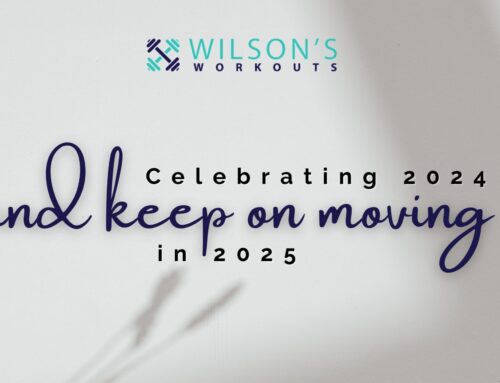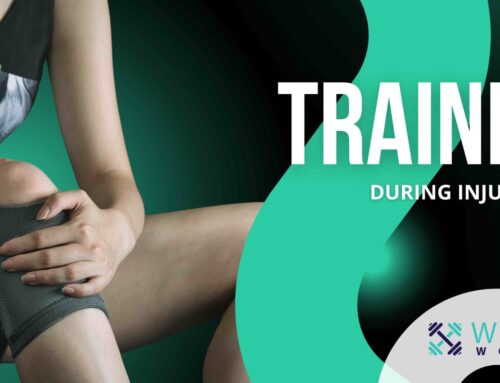When I first did my personal training qualification, just over 13 years ago, there was no mention of what happens to women as they move into their 40s and beyond. We may have learned that we lose muscle mass from a certain age but all research for sport and fitness was done on young men and, apart from briefly mentioning pregnancy, it was assumed that we are all the same.
As I have moved through my 40s, I have noticed small changes in my own body that have prompted me to find out more, as well as explore if I can serve this group better than I did in the past. There is still a lot of research to be done on women in general, however things feel like they are starting to head in the right direction. I obviously don’t know everything on the subject but I think that just being able to acknowledge this stage with my clients and allowing them to voice what they are feeling is already a big difference for them. Although I am sure I am not always their favourite person when I am the first person to suggest maybe they are moving into perimenopause.

Photo by Gabrielle Henderson on Unsplash
To further help women in their 40s and beyond to start or continue to improve their fitness and health, I have started taking a course on the topic. It is an online course that I will complete in my own time, so this could take a while haha. However, bit by bit, I can share what I learn and, my goal is to launch a new service/product that can pull it all together. Of course all this takes time and in the meantime I am busy with training clients and my triathlon training. However, to help me, I would love to hear from you and find out what you want to know more on this topic. Please fill in this survey so I can prioritise what is most popular.
I feel that I can best help my clients on the lifestyle side of managing their perimenopausal symptoms. I’d like to talk today about how looking after your stress levels can give you a helping hand and I’d like to challenge you to take some time out to work on it.
Pre menopause, our bodies produce estrogen in the ovaries and one of the great things estrogen does is create a buffer when you experiencing stress. Testosterone is also great at helping you out during stressful periods. When you transition to menopause, your estrogen is mainly produced in your adrenal glands (where cortisol, our main stress hormone is produced). A lot less estrogen is produced and there is a reduction of testosterone too. Therefore it is harder for our bodies to deal with stress. I do hear of women telling me that they can’t handle so much at work as they used to when they were in their 20s. This is one of the reasons! So, if you recognise this, this might explain it.
The adrenal gland responds to stress with a short term buffer of cortisol. But if there is too much stress, inflammation can be created this can affect the gut, immune system, digestive system, the skin and increase of autoimmune risk factors.
So, what to do with this information? I’m not completely ignorant that I can expect you to all give up your jobs, move to the country and live a stress free life. There is stress in your lives that you can’t control. But, perhaps, you can look at your life and see if you can remove some things that are causing stress.
Stress buffering starts in the brain but it doesn’t know the difference between what the various stresses are. So, as well as removing stress, we can diffuse stress with activities that are calming.
There are also small things you can add to your life that will reduce the stress in your body. You have probably seen this list before, but it is always good to be reminded:

Photo by processingly on Unsplash
- Mindfulness
- Yoga practice
- Walking in nature
- Slow and deep breathing
- Cold swimming/showers (Although I must admit that this just makes me cold and miserable)
- Connection, laughing, hugs
- Petting a pet
- Movement
Here is my challenge to you:
Because I am all about movement, I challenge you to take 3 walks a week of around 20 minutes. The twist is that you leave your phone at home (and if this is not possible keep notifications off or resist the temptation to look at it while you are walking). Bonus points if you can get yourself into nature.
By doing this regularly you will have started a habit. After a few weeks, you can reassess and see if you can add some other good habits to improve your lifestyle further. I’d love to hear how you get on with this.
I understand that to read that we can’t deal with as much as we used to can be a bit confronting. If you are amongst a lot of stress that you can’t control it might feel like an uphill battle to get through the day. But I hope that this information at least can explain what you are feeling. Just stopping to take a couple of deep breaths can already reduce your stress levels, so don’t underestimate the power of small things that can help you right now.
If you are still not sure that you want to work with me, come and try one session for free to see what you think for yourself. You can see the class times here and get your free session here.
Author: Lorna Wilson
Like what you see? Then send me a message or e-mail. We can meet up for a chat and find out how I can help you improve your training and help reduce injury risk.
06 460 377 74 / lorna@wilsonsworkouts.nl





[…] stop learning Previous […]
[…] Stress in your forties […]